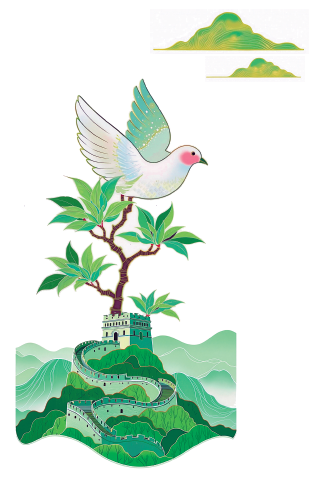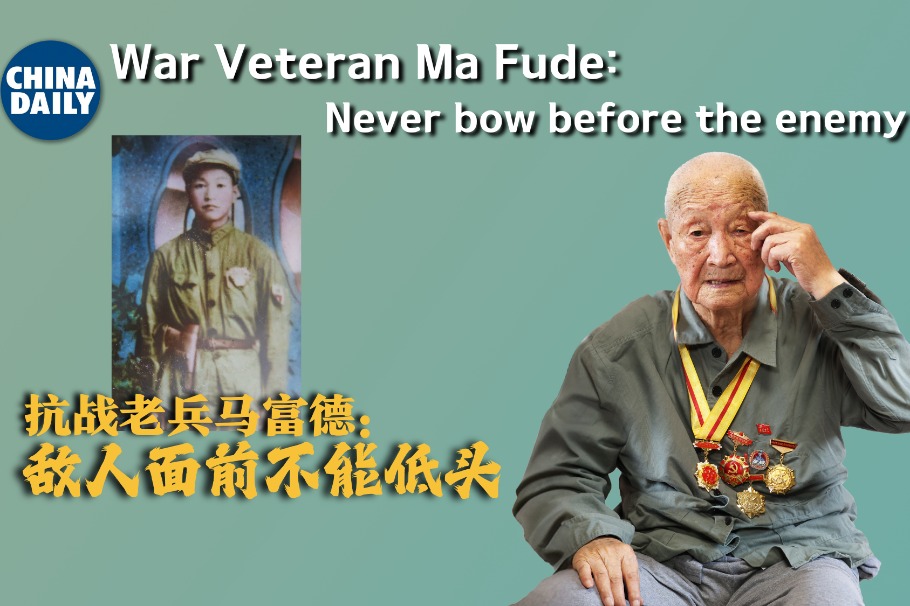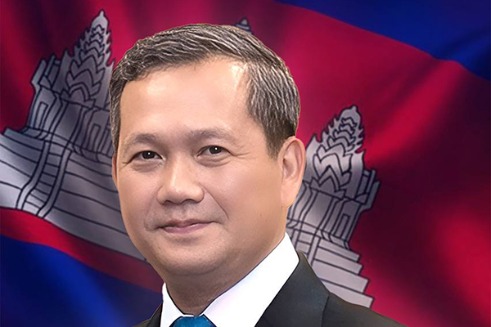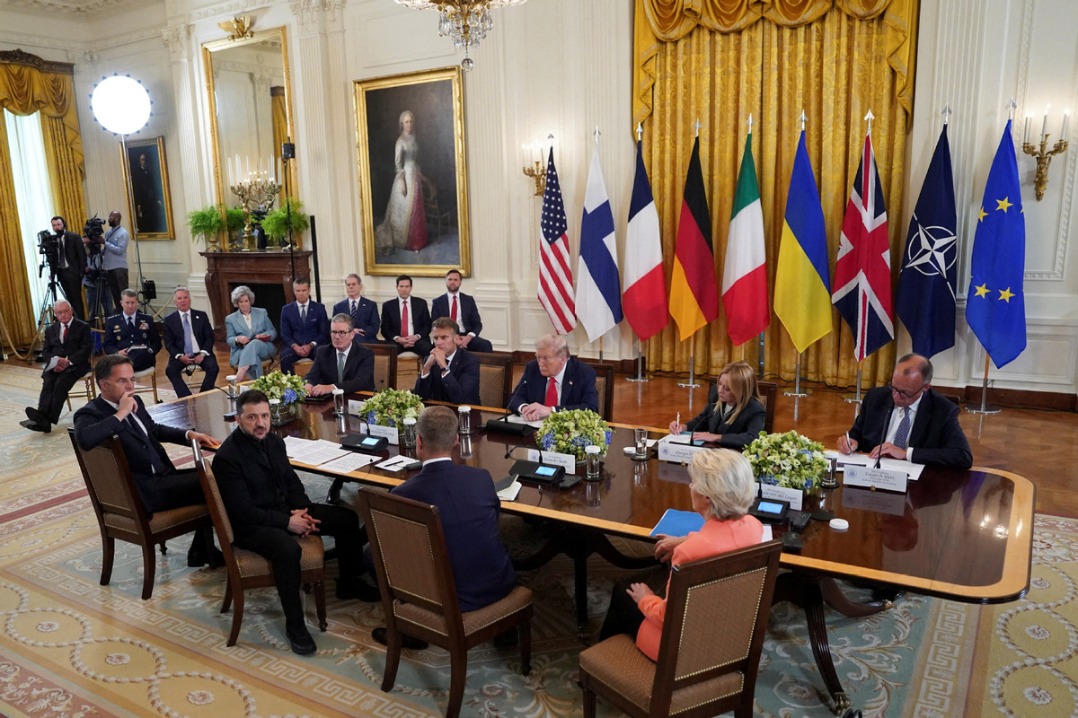Restoring truth is the least we can do to serve history


This year marks the 80th anniversary of the victory in the Chinese People's War of Resistance Against Japanese Aggression (1931-45) and the World Anti-Fascist War. In the World Anti-Fascist War, the Asian theater made perhaps the greatest contribution to the Allied victory, as it began much earlier and lasted longer than the Western theater.
Following Japan's acceptance of the 1945 Potsdam Declaration and unconditional surrender to the Allied forces on Aug 15, 1945, Japanese representatives signed the instrument of surrender aboard the USS Missouri in Tokyo Bay on Sept 2, 1945. In China, the surrender signing ceremony was held in Nanjing on Sept 9, 1945, ending the 14-year-long Chinese People's War of Resistance Against Japanese Aggression.
However, Japan's attitude toward its history of aggression raises a major question, for which the regression of Japanese governments' position is to blame. Japan issued three "statements". The first was the 1982 statement by then chief secretary of the Japanese cabinet Kiichi Miyazawa which included the "close-neighbors clause" of "not provoking neighboring countries" by including controversial issues in history textbooks, and promised that "the Japanese government will correct contents recorded in textbooks in a responsible manner".
The second was the 1993 statement by then chief secretary of the Japanese cabinet Yohei Kono who acknowledged that the Japanese military established and managed "comfort stations", and "recruited" and retained "comfort women".
And the third was the 1995 statement by then prime minister Tomiichi Murayama on the 50th anniversary of Japan's surrender. Murayama expressed "deep reflection" on Japan's past colonial rule and aggression, emphasizing the need to learn lessons from history. He said that "our task is to convey to younger generations the horrors of war, so that we never repeat the errors in our history". These three statements were seen as reflecting Japan's official position on its history of aggression.
But Japan's "1955 system" collapsed and Japanese society became "generally conservative" in the following years, allowing erroneous historical views to be spread. Right-wing conservative forces denied, and even glorified, the country's history of aggression in a bid to get rid of the so-called postwar system.
In 2015, then Japanese prime minister Shinzo Abe issued a statement to mark the 70th anniversary of the end of World War II, deliberately avoiding the historical facts of militarist Japan and colonial rule in Asian countries, saying "we must not let our children, grandchildren and even further generations to come, who have nothing to do with that war, be predestined to apologize".
Abe also floated the theory that "the definition of aggression is undefined". While then mayor of Osaka Toru Hashimoto said that the "recruitment" and retention of "comfort women" were "necessary" for Japanese soldiers in order to "maintain discipline", then deputy prime minister Taro Aso suggested Japan secretly revise its Constitution by emulating the practices of Nazi Germany before World War II.
Needless to say, those Japanese leaders, by trying to distort history, violated international law.
Contrary to Abe's claim, the international community reached a consensus on what constitutes "aggression" almost a century ago, corroborated by the 1928 Kellogg-Briand Pact, the 1946 United Nations General Assembly resolutions, the 1948 verdict of the International Military Tribunal for the Far East, and the 1974 UN resolutions.
Besides, the International Military Tribunal for the Far East, established in January 1946, highlighted the fact that the Japanese army massacred more than 200,000 civilians and prisoners of war in and around Nanjing. And the Nanjing War Crimes Tribunal, established in February 1946, ruled the Japanese army killed no fewer than 340,000 people in Nanjing. Both said the acts of the Japanese army were "aggressions" and examples of barbarity.
Unlike post-war Germany, Japanese society did not cut ties with its prewar history. This explains why the conservative governments led by the Liberal Democratic Party have consistently been evasive about the country's history of aggression.
On Aug 15, 2022, the Exhibition Hall of Evidences of Crime Committed by Unit 731 of the Japanese Imperial Army, a museum in Harbin, Heilongjiang province, for the first time made public the complete list of names and personal information of all the 414 members of the Japanese army's Kwantung Army Chemical Department who were responsible for conducting chemical and biological tests on Chinese people. It is an important historical document. In 2017, it was transferred to the National Archives of Japan's Digital Archive.
In April this year, Japanese Communist Party member of the House of Councilors Taku Yamazoe publicly revealed an internal document of the Committee on Foreign Affairs and Defense, which was formulated in 1983 by the National Institute for Defense Studies under Japan's Ministry of Defense. The document, concealed all along, says that "personnel records of Unit 731 should receive special treatment", meaning they should not be made public.
Japan's egregious conduct cannot be divorced from the United States' complicity. The US' pragmatism is manifested in its attitude toward Japan. The Cold War prompted the US to rapidly change its Japan policy to counter the Soviet Union. That encouraged Japan to gradually deviate from its pacifist position, which is enshrined in the country's Constitution.
In 1946, under US pressure, Japan promulgated its pacifist Constitution, but just seven years later, the Constitution was called by then US vice-president Richard Nixon "a well-intentioned mistake". In March this year, US Secretary of Defense Pete Hegseth, while attending a memorial service in Iwo Jima to honor those who died in a battle during World War II, declared that "the bravery of those who fought on Iwo Jima — American and Japanese alike — endures in history, in sacred ground and the bonds between our nations. Their valor will never fade". Hegseth may not be unfamiliar with history, but realpolitik prompted him to distort it.
History must not be forgotten, and justice must be upheld. Fortunately, as the dust of time is cleared, more and more truths will come to light. Revealing, restoring and defending the truth are the best ways to serve history. And the Japanese conservative forces have no choice but to face up to history and correct their course.
The author is director-general of the Institute of Japanese Studies, Chinese Academy of Social Sciences, and chairman of Chinese Association for Japanese Studies.
The views don't necessarily represent those of China Daily.
If you have a specific expertise, or would like to share your thought about our stories, then send us your writings at opinion@chinadaily.com.cn, and comment@chinadaily.com.cn.



































